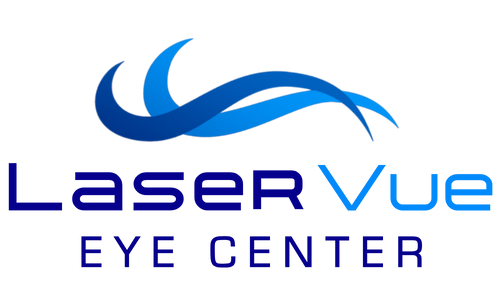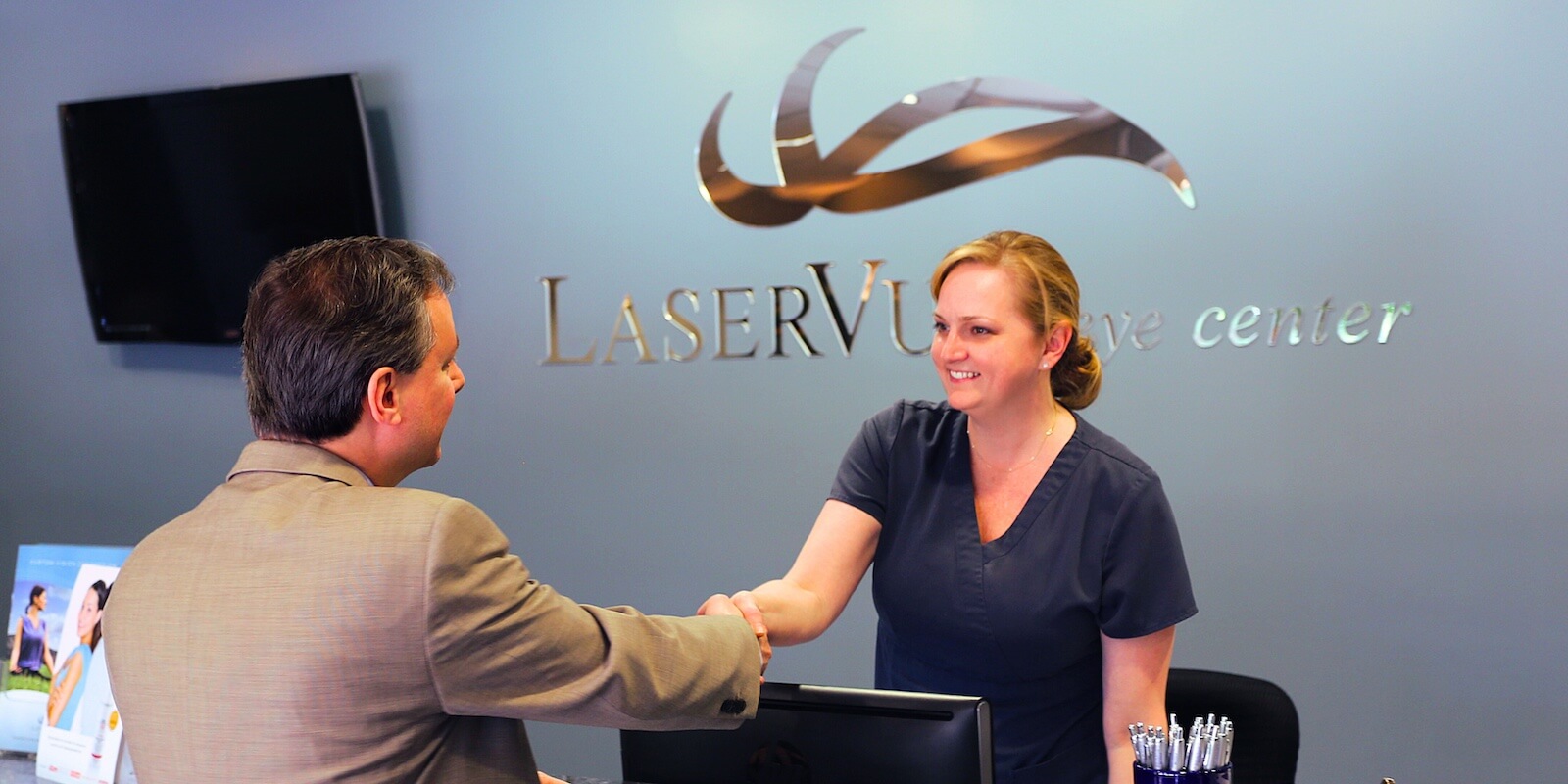Posted by: LaserVue LASIK & Cataract Center in LASIK

Addressing Farsightedness and Nearsightedness with LASIK
If you’re considering LASIK surgery, knowing the details about the procedure, the side effects, and the expected results are important. Many patients have lots of questions about how LASIK laser eye surgery can correct their vision, especially when it comes to farsightedness and nearsightedness. Read on for the most commonly asked questions about hyperopia, myopia, and presbyopia, and answers from the LASIK experts at LaserVue.
After LASIK surgery for farsightedness, how well can I expect to see? Will it be a reasonable replacement for glasses, or will it be better?
Most patients can expect their vision to be just about as good as when they wore glasses. If you’ve undergone Wavefront LASIK though, you may notice that your vision is slightly better than what it was with glasses prior.
When you attend your consultation for LASIK laser eye surgery, you will have your eyes examined by a refractive surgeon. The surgeon may be able to show you your prescription through their lenses. By doing so, you’ll be able to see your potential vision improvement after LASIK corrects your farsightedness.
I recently had LASIK surgery and my vision isn’t as good as I hoped. I had a different prescription for each eye and each has different results. Will this improve over time?
After LASIK, your eyes will continue to heal for a number of months. During this healing period, your body will adjust not only to your new vision, but will also try to heal what it thinks are “damaged” eyes. Because of this, it’s normal to have some fluctuation in your vision. If you had LASIK laser eye surgery on both eyes with different prescriptions, it’s definitely typical to experience clearer vision in the better eye while healing. You’ll most likely notice better results faster in the stronger eye.
On top of this, your eyes may actually heal at different rates. It’s possible that during the months in which your eyes are healing, your weaker eye may “catch up” in the healing process. Allow the proper healing period to pass before becoming too concerned with the results of your surgery. Of course, always contact your surgeon immediately if you have any concerns.
After my LASIK surgery, I’m now farsighted. Is this a common occurrence?
Being farsighted after LASIK is not a common occurrence, though it is more common in patients with high prescriptions. However, it’s not likely that you’ve actually developed farsightedness. More likely, you’ve begun to develop presbyopia, which occurs naturally with age starting around 40+ years of age. Presbyopia is similar to farsightedness but is caused by loss of elasticity of the lens in the eye. Specifically, presbyopia is identified by the inability to change focus to see objects up close.
Typically, this process isn’t a threat to your vision and there are other surgical options available to correct it. Glasses and contact lenses are also a viable option. Speak with your surgeon to evaluate all of your options and choose the best one for you.
I’ve aged since my first LASIK procedure and I now require reading glasses. Is it possible to have LASIK for farsightedness after having LASIK for nearsightedness?
It is possible to have LASIK for farsightedness after undergoing surgery to correct nearsightedness.There are several ways to go about this and several factors that determine your candidacy, depending on your health situation and previous procedures.
If you’ve had LASIK performed on both eyes already, your refractive surgeon will have to determine if it’s safe for you to have another procedure. If, after an eye exam, your surgeon believes there is enough corneal tissue and your eyes are healthy, you’ll be given the option for monovision.
Monovision to compensate for concurrent farsightedness and nearsightedness
Most people begin noticing a decrease in ability to focus up close around 40-45 years old. This is a completely natural process that can be remedied by correcting your dominant eye for far vision and your non-dominant eye for near vision. This procedure is called monovision.
Monovision is a good option for people experiencing natural presbyopia due to aging. It allows you to utilize one eye for everyday vision, and the other for up-close work.
It is worthwhile to note that some people do not adapt well to monovision. Generally, the best course of action is to wear eyeglasses that simulate the monovision state during waking hours for a number of weeks. By simulating monovision for a long enough period of time, you can be sure that you’re a good candidate for the procedure.
Schedule Your Free LASIK Consultation for Farsightedness or Nearsightedness
LaserVue has helped thousands of patients reclaim their vision over the years. If you suffer from farsightedness or nearsightedness and are considering LASIK laser eye surgery, contact the experienced LASIK surgeons at LaserVue. Dr. Bansal is a nationally recognized refractive surgeon who can help you choose the best option for your eyes.
Contact us to schedule your LASIK eye surgery consultation by calling (800) 527-3745 or fill out the form below to get in touch with us and learn more about LASIK.
[gravityform id=”16″ title=”true” description=”true”]

